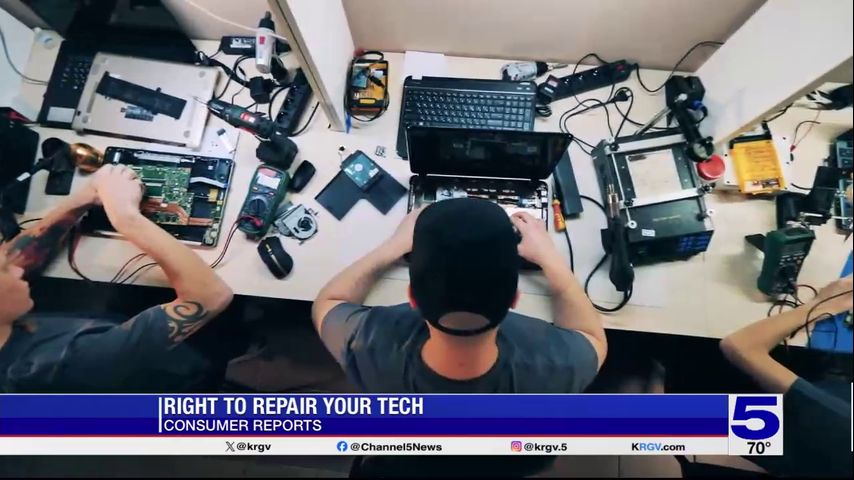Consumer Reports: The right to repair your tech
Why is it so complicated and costly to get your computer or phone fixed when it breaks? Too often, your only options are to use the manufacturer’s preferred repair service—at a possibly inflated price—or buy a whole new product. But as Consumer Reports explains, change is on the way.
It’s a common gripe from consumers that manufacturers frequently limit tech repairs to "authorized" repair shops, making it much harder to use a convenient and affordable service, much less do the repairs themselves.
Oftentimes, manufacturers don’t develop these products with repairability in mind. That forces consumers to rely on them for repairs, which can be costly and at times inconvenient.
But that might be starting to change. Consumer Reports advocates helped pass the country’s first “right to repair law” in New York, giving residents more choice in how they can get tech products like laptops and phones fixed. They can go to an independent repair shop that can provide the same kind of quality as Apple or Best Buy. And they’re now able to get parts, tools, and instruction manuals straight from the manufacturer.
Similar bills are in the works in California, Colorado, Massachusetts, and Minnesota. But even if you don’t live in a state that has a right to repair law, you may see benefits.
Manufacturers are beginning to make replacement parts and service manuals available online, information Consumer Reports says has been secret for far too long and could save consumers big bucks.
Families could save up to $330 a year if they were able to repair their products themselves or find other ways to repair them rather than relying on the manufacturer. More than 600,000 tons of e-waste would be saved from going into landfills.
Most right to repair laws cover electronics such as laptops, smartphones, and tablets, but not home appliances like microwaves or medical equipment. But as these laws become more common, eventually they could end up covering more items around the house.





